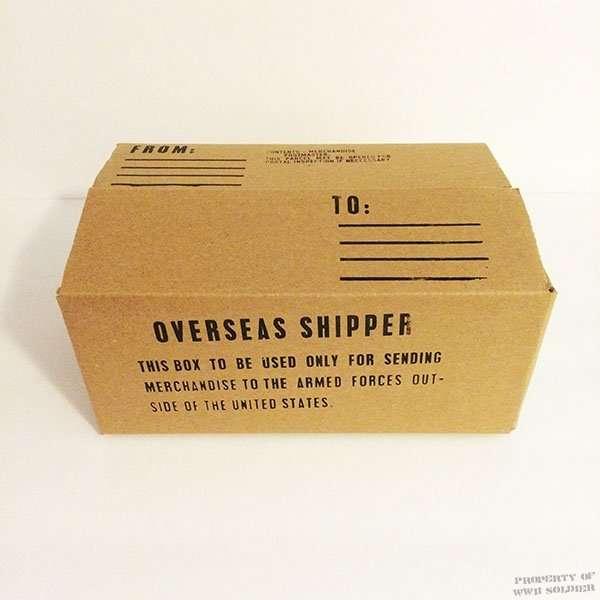Overseas shippers have temporarily halted certain deliveries to the United States in response to recent tariff adjustments, highlighting growing tensions in international trade logistics. The move comes as importers and exporters navigate new costs and regulatory challenges, raising concerns about potential disruptions to supply chains and consumer markets. Industry experts warn that these pauses could have ripple effects across multiple sectors, underscoring the complexities of evolving trade policies.
Overseas Shippers Halt Deliveries Amid Rising Tariff Uncertainties
Global freight companies are temporarily suspending shipments destined for the United States as uncertainty looms over potential tariff revisions. Industry insiders warn that the irregular enforcement and sudden announcements from trade authorities have disrupted logistics planning, forcing many shippers to pause operations to reassess cost implications. This hesitation reflects growing concern over the unpredictable financial landscape that importers and exporters are currently navigating.
Key factors contributing to the shipment halt include:
- Proposed increases in import tariffs on consumer electronics and machinery
- Unclear timelines for tariff implementation and possible exemptions
- Heightened risk of supply chain bottlenecks affecting delivery windows
- Rising costs associated with customs processing and compliance
| Shipment Category | Current Status | Projected Impact |
|---|---|---|
| Consumer Electronics | On hold | Delays up to 4 weeks |
| Automotive Parts | Reduced capacity | Increased transport costs |
| Textile Goods | Paused | Uncertain delivery dates |
Economic Impact of Delivery Pauses on US Retail and Manufacturing Sectors
The recent decision by overseas shippers to pause certain deliveries to the United States in response to tariff adjustments has sent ripples through the retail and manufacturing sectors. Companies heavily reliant on imported components and finished goods face immediate disruptions, forcing some to reconsider inventory strategies and supply chain models. Retailers are particularly vulnerable during peak sales seasons, with delays potentially leading to stock shortages, increased operational costs, and a reduction in consumer confidence as product availability tightens.
Manufacturers grappling with halted shipments must now navigate a landscape of uncertainty, where increased input costs and supply delays threaten production schedules. The economic consequences are already being felt across several metrics:
- Inventory Holding Costs: Rising as companies buffer against supply chain unpredictability.
- Price Volatility: Increased tariffs and shipping pauses driving up wholesale and retail prices.
- Employment Fluctuations: Potential hiring freezes or layoffs in affected manufacturing plants.
| Sector | Short-term Impact | Projected Recovery Timeline |
|---|---|---|
| Retail | Product shortages, price hikes | 3-6 months |
| Manufacturing | Supply delays, cost overruns | 6-12 months |
| Logistics | Backlogs, rerouting efforts | 2-4 months |
Navigating Tariff Changes How Businesses Can Mitigate Supply Chain Disruptions
Businesses facing shifting tariff landscapes must adapt swiftly to minimize the impact on their supply chains. One effective strategy involves diversifying suppliers across multiple countries to avoid heavy dependence on regions affected by new tariffs. Additionally, firms should consider stockpiling critical inventory before tariff changes take effect, giving them a buffer to handle potential delivery pauses. Maintaining transparent communication with overseas shippers and logistics providers is essential to anticipate delays and adjustment needs early.
Strategies to Mitigate Supply Chain Disruptions:
- Identify alternative sourcing markets to reduce tariffs impact
- Negotiate flexible shipping contracts that accommodate delays
- Invest in supply chain visibility tools for real-time tracking
- Implement predictive analytics to forecast tariff-driven cost fluctuations
| Action | Benefit | Risk |
|---|---|---|
| Diversify Suppliers | Reduces tariff exposure | Higher management complexity |
| Stockpile Inventory | Ensures continuity during delays | Increased holding costs |
| Flexible Contracts | Adapts to shipping changes | Potential cost premiums |
| Tech Investment | Improves decision-making | Initial capital outlay |
Policy Recommendations to Stabilize International Shipping and Trade Relations
To address the recent disruptions triggered by abrupt tariff changes, policymakers must prioritize predictability and transparency in international trade regulations. Establishing clear timelines for tariff adjustments and improving communication channels between governments and maritime stakeholders are essential steps to restore confidence among overseas shippers. Additionally, fostering cooperative trade agreements that include dispute resolution mechanisms can help mitigate risks of sudden delivery suspensions, thereby ensuring smoother supply chain operations.
Furthermore, enhanced collaboration on infrastructure investment and digitalization across major ports and customs agencies can significantly reduce delivery delays. Implementing unified data-sharing platforms for freight tracking and tariff updates will empower shippers to optimize routing and logistics management. Below is a table summarizing critical policy measures needed for stability:
| Policy Measure | Expected Impact |
|---|---|
| Tariff Adjustment Transparency | Reduced uncertainty for shippers |
| Bilateral Trade Agreements | Quicker resolution of trade disputes |
| Digital Freight Tracking | Improved delivery predictability |
| Port Infrastructure Investment | Enhanced cargo handling efficiency |
Concluding Remarks
As overseas shippers adjust their operations in response to the latest tariff changes, the ripple effects on supply chains and consumer markets in the United States remain closely watched. Industry stakeholders continue to assess the evolving trade landscape, balancing cost pressures with the demand for timely deliveries. As this situation develops, businesses and consumers alike may need to brace for potential disruptions and adapt to a shifting global trade environment. NewsNation will keep monitoring these changes to provide updates on their impact.




